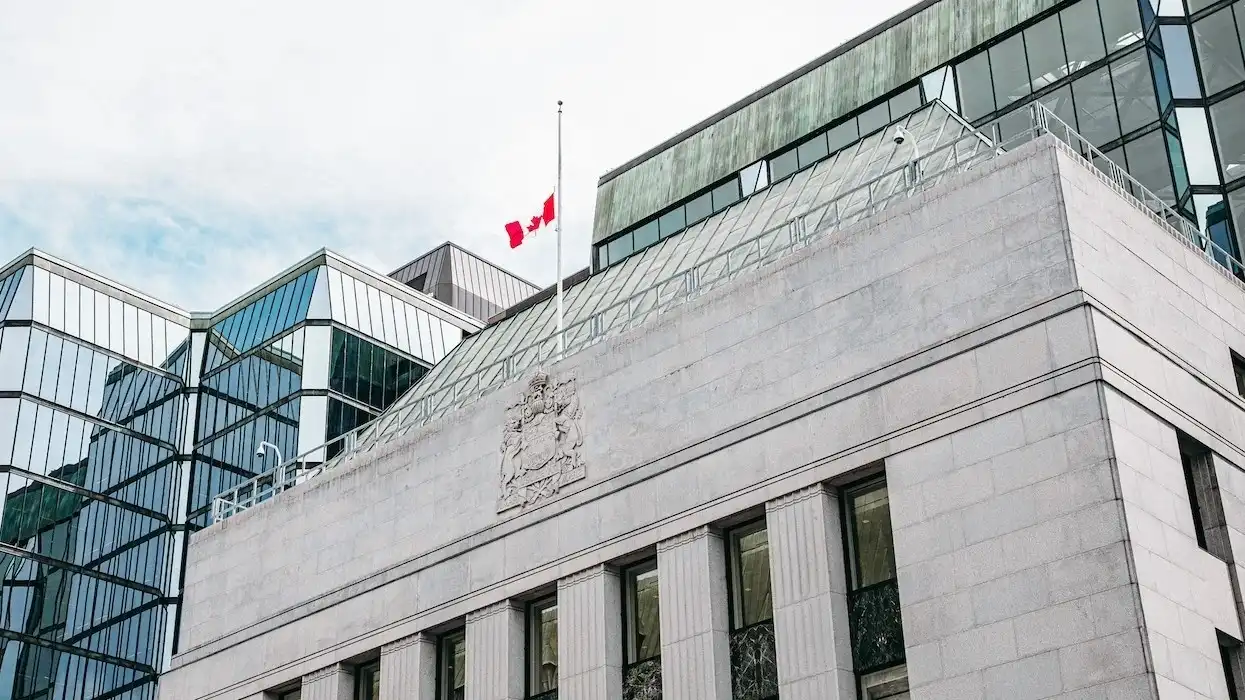On January 29, the Bank of Canada (BoC) will announce its first interest rate decision of 2025. But after months of (seemingly) no-brainer rate reductions amid inflation edging down, a number of external forces are muddying what Tiff Macklem has in store for the Wednesday announcement.
In recent weeks, unemployment unexpectedly improved, but the Consumer Price Index (CPI) ticked up year over year and US President Donald Trump continued to threaten a 25% tariff on all Canadian goods, which we could see implemented as soon as February 1st.
Due to these economic headwinds and tailwinds, there's some debate over whether or not there will be a rate cut next week, though there is agreement that the cut is unlikely to surpass 25 basis points — a more modest reduction than the previous 50 bps cuts in December and October.
Job Gains Unlikely To Pause Rate Cuts
In an economic report, Desjardins said of the December 2024 employment report, "It’s tough to find much in the way of bad news."
They're right. According to Statistics Canada, the unemployment rate inched down to 6.7% from 6.8% after it was widely expected to rise to 6.9%, 91,000 net new jobs were added, and total hours worked rose 0.5% from November and 2.1% year over year.
In light of these positive economic indicators, BMO's Chief Economist and Managing Director Economics Douglas Porter said in a January 10 news release that the jobs report could "prompt some meaningful doubt on whether the Bank of Canada will cut again in January," also highlighting the possibility that the struggling Canadian dollar could move the BoC to "chill" on rate cuts for now.

But despite doubts from BMO, Desjardins maintains that the BoC will move forward with a 25 bps cut before taking a break in March — a forecast seconded by TD Bank Economist Rishi Sondhi who explains why he thinks the report alone likely won't be a dealbreaker.
"All else equal, that's one individual data point, right? It doesn't change our view that the Bank of Canada will be wanting to take out insurance against downside risk stemming from U.S. trade relations," Sondhi tells STOREYS. "And I will note that there's been some signs that Canada's economy has improved a little bit in the fourth quarter of this year, but we're not talking about an economy that I would say is on fire, right?" he adds. "They don't necessarily have to worry that one rate cut is going to ignite inflation, because the economy is not roaring at the moment."
In December 2024, CPI rose 1.8% on a year-over-year basis, down from a 1.9% increase in November, but Sondhi points out that the BoC will factor the GST and HST holiday into that deceleration. Zooming out, core inflation sits at about 2.5% as of December, slightly north of the 2% target.
Experts Split On Impact Of Tariff Threat On BoC Decision
Of course, a wild card remains in the form of Trump's continued tariff threats.
While Sondhi sees the volatile US-Canada trade relations fostering "downside risk" that a 25-bps January rate cut could preemptively protect against, CPA Canada’s Chief Economist David-Alexandre Brassard foresees the BoC exercising caution, as it has done in the past.
The main reason for Brassard's hesitation has to do with the currency risk that grows when Canada's interest rate diverges from the US — a factor he says wasn't as influential on rate cut decisions prior to the return of Donald Trump.

"This risk has kind of been sidelined, because unemployment kept rising in Canada, but ever since Trump got elected, the Canadian dollar is suffering, [...] the exchange rate is not great, [...] tariffs are going to hurt us more than they're gonna hurt the U.S.," Brassard tells STOREYS. "So, is it going to make the Canadian dollar plunge even more so if the Bank of Canada decides to cut interest rates again? As I said, this risk has been sidelined. Are they going to sideline it as much for this one? I'm not sure."
With the Loonie on the line, Brassard remains unconvinced that the BoC will cut rates on the 29th. "I don't think it's as much of a 'slam dunk' as other people seem to think," he says. "The interest rate cuts seem to be making a difference on the economy, [...] so is there as much urgency to cut? [...] The Bank of Canada has been very cautious in the past, so that's why I'm not entirely sure."
At the same time, Brassard says that though it could go either way, the BoC is facing a more complex decision than it did for previous rate cuts. "It depends on the vision they want to take and the risk they want to consider in their decision," he says. "There's reasoning to bring forth both decisions. Meanwhile, in the last two or three decisions, it was clear, in my opinion, the right way to go."





















